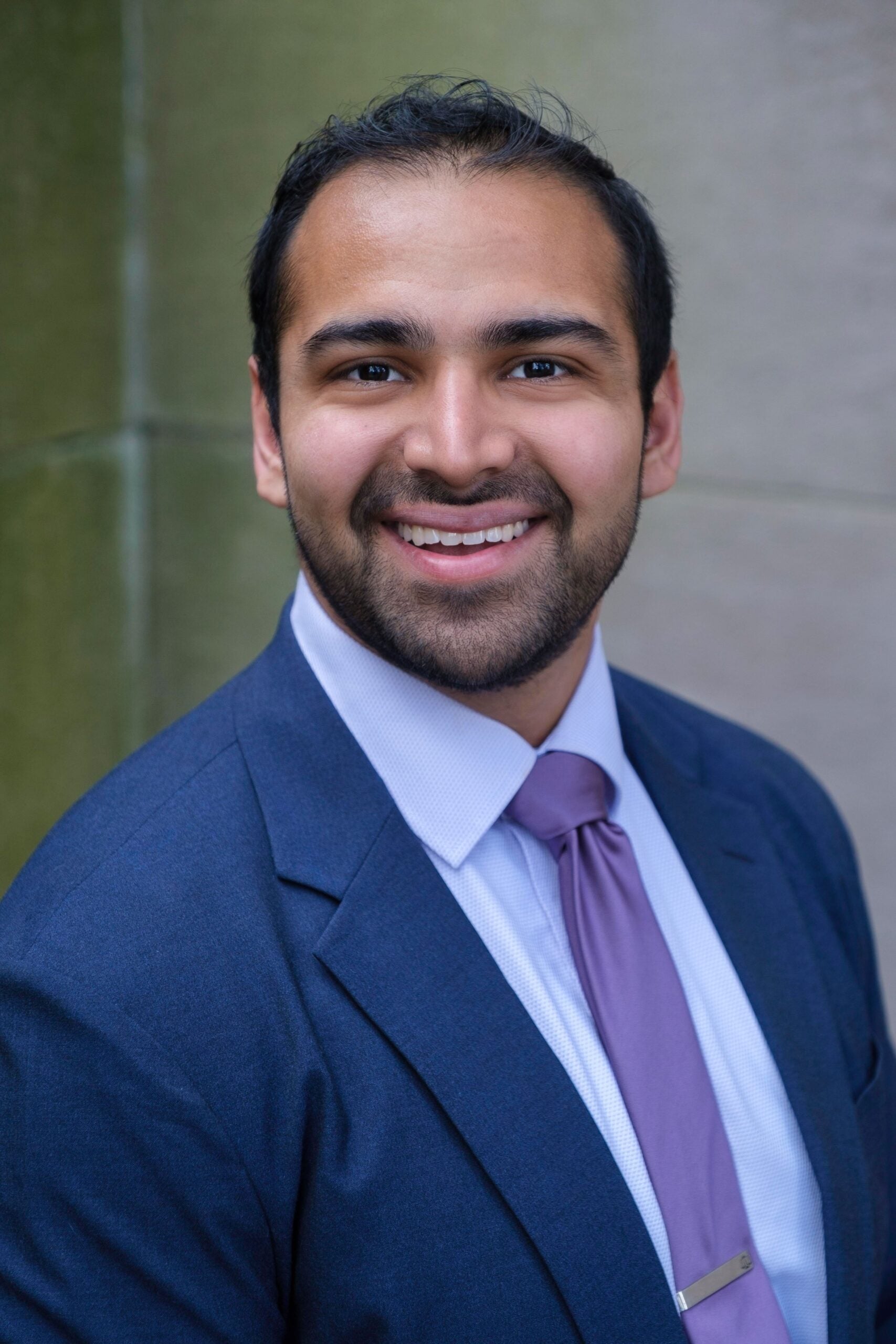By Azhan Hasan ’23
In the Religious Freedom Clinic last fall, I had the opportunity to contribute to protecting vulnerable religious groups, engage in meaningful classroom discussions about complicated attorney-client relationship issues, and use a variety of legal tools to advance our clients’ causes. Above all, the most rewarding part of my involvement in the Clinic was discovering a community that cherishes religious pluralism for its own sake and commits itself to protecting the free practice of all faiths.

I joined the Religious Freedom Clinic because I understood the importance of protecting the practice of minority religions. Growing up in Tyler, Texas, my second home was the local masjid, an appropriately Texas-sized building with classic Muslim architectural features. There, I accompanied my dad or grandfather for the five daily prayers, attended Sunday School, and played with other Muslim children. In a place like Tyler where you can’t drive five minutes without seeing another church, the existence of a robust public practice of Islam depends on religious freedom laws. I bore in mind the fragility of my religious upbringing as I approached my first case assignment. Our client, an Orthodox Jewish community, had recently purchased a small building for use as a community education center, only to have the municipality attempt to take it by eminent domain within a few weeks, with strong indications of discriminatory intent. We used public records requests to uncover evidence that municipal officials had been motivated by a desire to oust our client from the community. Through the process, I learned about how making these public records requests, pushing back on denials, and analyzing the contents of the responses are crucial methods of preparing to present our case at trial. Most importantly, I recognized how much effort it took to protect a community and its traditions from government encroachment.
Another aspect of my upbringing—attending an Episcopalian K-12 school—helped me understand how special the Religious Freedom Clinic community is. Though my family is devoutly Muslim, my parents recognized that the Christian values taught at my school would cultivate good character in their children. At school, I learned about several aspects of the Christian tradition at weekly chapels and classroom discussions with the chaplain. Participation in religious services was never compelled, and non-Christian students like me were always welcome and appreciated. Although I was sometimes frustrated from repeatedly explaining to classmates why I didn’t get presents for Christmas or why I didn’t eat lunch during Ramadan, I eventually came to love learning about their religious beliefs and teaching them about mine. Even as my religiosity has waxed and waned over the years, I have long valued my awareness of multiple religious traditions and the lessons we can learn from each of them.
Students in the Religious Freedom Clinic come from a diverse set of faith backgrounds, and we often found ourselves representing clients whose religious beliefs differed from our own. In our seminar discussions and case rounds, we grappled with how best to empathize with, for example, our Native American or Sikh clients for whom cutting their hair was deeply injurious to their sense of being. As a clinic, we leaned on each other’s faiths, and we took care to research where our collective backgrounds fell short. Over the course of the semester, I came to understand more deeply that for sincere believers, a religious practice is not just something they do—it’s who they are. Their beliefs are not surface-level preferences, but convictions that exist at the deepest of their core. However devout each of us were in our own faiths, we met our clients wherever they were in their faith journey and did our best to help them practice freely according to the dictates of their conscience. When you realize that religious freedom lawyering can easily be motivated by self-interest in preservation of one’s own religion, it’s incredibly special to find a group of devoutly religious people who are eager to learn from each other’s faiths and who stand for religious freedom for its own sake.
Religious freedom lawyering often seeks to keep the government from interfering in matters of religion. Going much deeper than this noninterference, religious freedom lawyering entails appreciating and celebrating the many religions that make up our country. Even as we differed in our practices of religion, our clinic’s collaboration to advance the cause of religious liberty for all makes me eager for more religious freedom work in the future.
Filed in: Clinical Student Voices
Contact Office of Clinical and Pro Bono Programs
Website:
hls.harvard.edu/clinics
Email:
clinical@law.harvard.edu